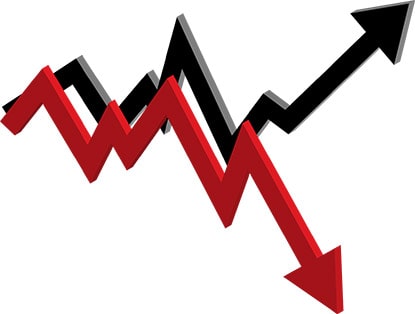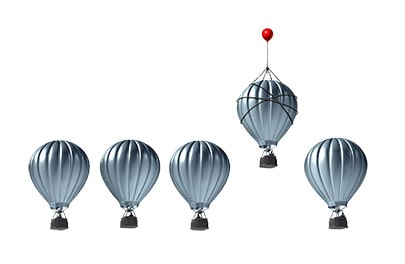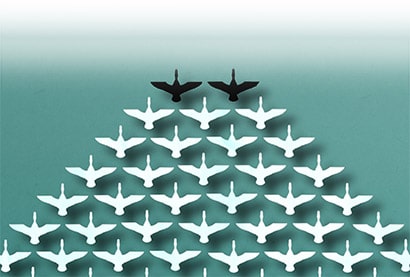Competition Law in UAE
 If a certain organization succeeds in overtaking the market by outshining its competitors, then the competitors face abuse of a dominant position which leads to a competitive market being governed by erroneous marketing mechanisms. Such erroneous market mechanisms would also include within its ambit where two or three dominant distributors or sellers of a particular product, for instance, toothpaste, decide together to sell all such kinds of toothpaste available in the market at a high price which leaves the consumers with no option but to purchase an essential product like toothpaste at the hands of unfairness. The competition law in the United Arab Emirates (UAE), targets to promote and at the same time, protect competition and anti-monopoly practices by enhancing efficiency and consumer interest. Sustainable development is aimed to be achieved by stimulating a healthy and productive environment amongst organizations by regulating fair, competitive practices in the jurisdiction. Federal law Number 4 of 2012 on the Regulation of Competition (Competition law) governs competition in UAE and aims at harboring fair and correct market mechanisms in consonance with the principle of economic freedom. Exclusion and prohibition of restrictive agreements are adhered to garner the prevention of competition. Acts and behaviors leading to a dominant position and controlling of economic concentration operations are prohibited along with any other acts endangering or limiting competition. An economic concentration is an act that would result in an organization or a group of organizations to have direct or indirect control over an organization or a group of organizations by the execution of whole or partial transfer in the title of property, rights, shares or stocks from one organization to another. Any organization being enabled to control either individually or collectively with any other organization that affects the relevant market would be in the hindrance of the Competition Law. Any legal or natural person practicing an economic activity or any person in an association, regardless of its legal form, is entitled to do so and will be termed as an organization under this Law. A relevant market would entail any commodity or service or a combination of commodities or services which based on their characteristics, price and methods of use may be substituted with any other goods or services or other alternatives chosen in order to meet a specific requirement of consumers in a certain geographical area. Competition can be defined as an organization performing economic activities in a relevant market in accordance with the market mechanisms without such market mechanisms having an adverse impact or limiting development.
If a certain organization succeeds in overtaking the market by outshining its competitors, then the competitors face abuse of a dominant position which leads to a competitive market being governed by erroneous marketing mechanisms. Such erroneous market mechanisms would also include within its ambit where two or three dominant distributors or sellers of a particular product, for instance, toothpaste, decide together to sell all such kinds of toothpaste available in the market at a high price which leaves the consumers with no option but to purchase an essential product like toothpaste at the hands of unfairness. The competition law in the United Arab Emirates (UAE), targets to promote and at the same time, protect competition and anti-monopoly practices by enhancing efficiency and consumer interest. Sustainable development is aimed to be achieved by stimulating a healthy and productive environment amongst organizations by regulating fair, competitive practices in the jurisdiction. Federal law Number 4 of 2012 on the Regulation of Competition (Competition law) governs competition in UAE and aims at harboring fair and correct market mechanisms in consonance with the principle of economic freedom. Exclusion and prohibition of restrictive agreements are adhered to garner the prevention of competition. Acts and behaviors leading to a dominant position and controlling of economic concentration operations are prohibited along with any other acts endangering or limiting competition. An economic concentration is an act that would result in an organization or a group of organizations to have direct or indirect control over an organization or a group of organizations by the execution of whole or partial transfer in the title of property, rights, shares or stocks from one organization to another. Any organization being enabled to control either individually or collectively with any other organization that affects the relevant market would be in the hindrance of the Competition Law. Any legal or natural person practicing an economic activity or any person in an association, regardless of its legal form, is entitled to do so and will be termed as an organization under this Law. A relevant market would entail any commodity or service or a combination of commodities or services which based on their characteristics, price and methods of use may be substituted with any other goods or services or other alternatives chosen in order to meet a specific requirement of consumers in a certain geographical area. Competition can be defined as an organization performing economic activities in a relevant market in accordance with the market mechanisms without such market mechanisms having an adverse impact or limiting development.
Scope and Jurisdiction
This Law shall apply to all economic activities that are carried out by organizations in the UAE. It shall also extend to the abuse of intellectual property rights inside and outside of the jurisdiction of UAE. Any such economic practices that are practiced beyond the territory of UAE, however, affect competition in the UAE, shall also be administered under this Law. The provisions shall not apply to any practice, agreement or business that is related to any service or commodity which is governed under the regulation of competition rules granted by another law or regulation to sectoral organizational bodies. However, if such sectoral organizational bodies apply to the Ministry of Economy in UAE in writing to be included and provided that the Ministry approves of such application, then the provisions of this Law shall apply to such sectoral organizational bodies. In the absence of such application, the exclusions shall continue to include the telecommunications sector; financial sector; oil & gas sector; cultural activities (including audio, visual and print); production and distribution of pharmaceutical products; mail and courier services; activities in relation to production, distribution and transmission of electricity and water; activities in relation to sewage, garbage disposal, sanitation and other similar activities along with environmental services in support of such activities and land, sea & air transport sectors (transport by rail and related services included). The Council of Ministers shall be authorized to make any addition or deletion of these sectors, activities or works laid down in such exclusions. Small and medium-sized organizations in accordance with prescribed controls by the Council of Ministers shall also be excluded. Any acts undertaken by the Federal Government or one of the UAE governments or any acts carried out by organizations based on decisions, authorizations or under supervision of the government shall be excluded from the ambit of this Law.
Competition Regulation Committee
 A committee by the name of Competition Regulation Committee shall be formed under the Competition Law which will be chaired by the undersecretary of the Ministry of Economy. The Council of Ministers shall hold power to oversee the formation of such a committee, along with the regulation of its work system, the term of membership and remuneration of the members of the committee. This Committee shall be responsible for mandating policy for the protection of competition in UAE. It shall also consider issues related to the implementation of provisions of the Competition Law and raise any recommendations as required to the Ministry. Any legislation or procedure as deemed necessary for the protection of competition shall be presented to the Minister of Economy and recommendations for the exclusion of restrictive agreements or practices relevant to the dominant position can also be made by the committee. Any submission of applications to the committee for reconsideration of decisions made by the Minister shall be made within ten days from the date of notification of such decision. The committee shall also have the duty to prepare an annual report on the activities of the committee which shall be presented to the Minister along with the handling of any other related matters for the security of competition in the jurisdiction of UAE.
A committee by the name of Competition Regulation Committee shall be formed under the Competition Law which will be chaired by the undersecretary of the Ministry of Economy. The Council of Ministers shall hold power to oversee the formation of such a committee, along with the regulation of its work system, the term of membership and remuneration of the members of the committee. This Committee shall be responsible for mandating policy for the protection of competition in UAE. It shall also consider issues related to the implementation of provisions of the Competition Law and raise any recommendations as required to the Ministry. Any legislation or procedure as deemed necessary for the protection of competition shall be presented to the Minister of Economy and recommendations for the exclusion of restrictive agreements or practices relevant to the dominant position can also be made by the committee. Any submission of applications to the committee for reconsideration of decisions made by the Minister shall be made within ten days from the date of notification of such decision. The committee shall also have the duty to prepare an annual report on the activities of the committee which shall be presented to the Minister along with the handling of any other related matters for the security of competition in the jurisdiction of UAE.
Anti-Competition Practices
The Law prohibits organizations holding a dominant position from the imposition of prices on retailers or distributors and prohibits from falsely or deliberating cutting prices to alter the mechanisms in the market to their own advantage either directly or indirectly. Restrictive agreements are proscribed from restricting or preventing competition in the relevant market. Any agreements that cause the freezing or limiting of production, distribution or marketing are prohibited. A restrictive agreement would also include any agreement that restricts the freedom of supply of goods and services in the relevant market. Anti-competition practices can be broadly divided into two parts, including restrictive agreements and abuse of a dominant position, and they have been outlined below:
Restrictive Agreements
Any agreement that has as its subject the abuse of competition shall be delimited. The Competition Law forbids restrictive agreements that cause retractions on competition in the relevant market. These regulations have been imposed and penalized as to prevent causing waves in the competition levels in the relevant market. Such restrictive agreements would include the following:
- Agreements that aim to fix directly or indirectly, the purchase/sale prices of goods or services by causing a reduction or increase or fixation of prices which affects competition.
- Any agreement determining terms and conditions of sale, purchase or performance of services or any similar transaction.
- An agreement indulging in collusion of bids or proposals in tenders, practices and any other supply offers.
- The limiting/freezing of production, distribution or marketing of any other investment aspects.
- Any conspiracy piloted for the prevention of purchase from a particular organization that ends up limiting sale or supply to any other particular organization shall be an agreement conducted to abuse competition.
- An agreement causing the obstruction of the ability of an organization to carry out its business would be prohibited.
- A sudden oversupply that leads to the circulation of goods and services at fake prices, restriction of freedom of supply of goods and services to relevant market including hiding or unlawfully storing goods and services would all be included under restrictive agreements.
- Any agreement aimed at market sharing, allocation of clients with respect to geographical areas, seasons, periods of time, customer quality, distribution centers affecting competition shall be restricted.
- Any obstruction of entry of an organization into the market or causing a deliberate exclusion of any organization from the market shall not be permitted.
Abuse of Dominant Position
 Any organization that is any dominant position in the relevant market or in any other influential or substantial part will not be sanctioned to carry out any activity that leads to the abuse of such a dominant position that prevents, restricts or prejudices competition. Such organization shall not be permitted to perform objectives that directly or indirectly impose prices or conditions for resale of any goods or services; sell goods or perform services deliberately below the cost price in order to obstruct entry of competitive organizations to the relevant marker; exposing such organizations to losses making it harder for competitive businesses to continue their business; compelling any customer to not deal with a competitive organization; unjustified imposition of a false price by abstaining selling or purchasing of goods or services; causing unjustified discrimination of customers in identical contracts in terms of process of goods and services; distributing false information knowingly about the products or process of any other organization; forming conclusions of sale or purchase contract or agreement for goods and services that lies contingent on acceptance of obligations for dealing with other goods or services that are unrelated to subject of original dealing; causing an increase or decrease in the quantity of a product which creates a forced deficit or oversupply of goods or services.
Any organization that is any dominant position in the relevant market or in any other influential or substantial part will not be sanctioned to carry out any activity that leads to the abuse of such a dominant position that prevents, restricts or prejudices competition. Such organization shall not be permitted to perform objectives that directly or indirectly impose prices or conditions for resale of any goods or services; sell goods or perform services deliberately below the cost price in order to obstruct entry of competitive organizations to the relevant marker; exposing such organizations to losses making it harder for competitive businesses to continue their business; compelling any customer to not deal with a competitive organization; unjustified imposition of a false price by abstaining selling or purchasing of goods or services; causing unjustified discrimination of customers in identical contracts in terms of process of goods and services; distributing false information knowingly about the products or process of any other organization; forming conclusions of sale or purchase contract or agreement for goods and services that lies contingent on acceptance of obligations for dealing with other goods or services that are unrelated to subject of original dealing; causing an increase or decrease in the quantity of a product which creates a forced deficit or oversupply of goods or services.
Penalties
Any organization that causes a violation of either the provisions prohibiting restrictive agreements and abuse of a dominant position shall be subject to a penalty of a fine ranging from AED 500,000 to AED 5,000,000. Other penalties include that any organization in violation of any other provision of the Law shall be fined of no less than AED 10,000 to no more than AED 100,000. In the event of a recurrence, the penalties shall be aggravated. It is also possible for a concerned party to file for a complaint with the Ministry that concerns any violation of the provisions of the Law in consonance with the executive regulations of this Law. A written request to the Minister can also call upon for a criminal case against any violations or negligence of duties being caused by the Ministry. Any competent court is entitled and authorized to render a decision for the suspension or prevention of any act in relation to competition cases that have been considered on a summary basis until the final declaration of the decision being rendered.
 English
English
 عربي
عربي Русский
Русский 官话
官话 português
português
 Türk
Türk 







